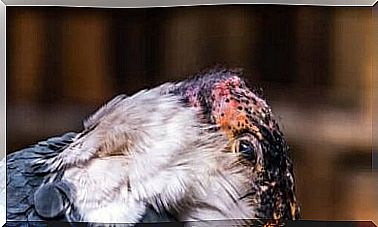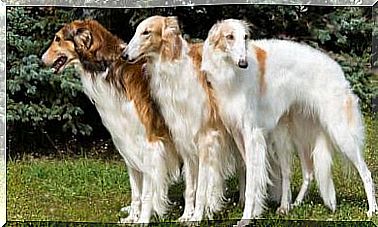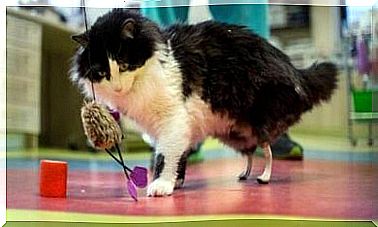Your Dog Rejects Those Who Are Unpleasant to You
Dogs have a reputation for being very intuitive. It has been proven that they are able to sense when people around them are sad or happy. Your dog rejects those who are unpleasant to you, but they also don’t forget the people who treated you well. That’s how animals are!
There are also frequent cases of dogs facing those who treat their owners badly. So it’s not strange when your dog rejects those who are unpleasant to you. But how does he manage to get this kind of information?
Many of the families that adopt a canine ensure that their pets are able to detect people’s bad energies. They even claim that the animals “tried to warn” about unfair behavior. In the perception of this, the good image that dogs had in Hollywood and in literature contributed.
Tests performed
To get these claims out of the field of science fiction, a few years ago, at Kyoto University, they began to study the behavior of dogs. The objective of the scientific investigation was to determine the reaction of several specimens to people who interacted with their owners.
For the experiment, 54 dogs were used, divided into three groups. The first group of animals received food from people who, in front of them, clearly refused to cooperate with their owners. They were also able to choose to eat from a container served by a stranger, without any direct interaction with the owner.
A second group had to choose between a feeder provided by a person who evidently helped the pet owners, and another served by an unknown, neutral individual.
On the other hand, the third group of dogs was assisted by two strangers, without any prior interaction with the animals or their owners. All dogs passed the three test scenarios.
The result
Of the 54 dogs tested, only one ate what was served by someone who eloquently decided not to stop to help its owner, while none of the specimens showed clear preferences between ‘neutral strangers’ and those who helped their owners.
For those responsible for this work, it was thus demonstrated that dogs do not act on their own. They are able to identify and reject those who dislike the human members of their groups.
It’s definite: your dog rejects those that are unpleasant
As we see, the dog has been proven to reject those who are disagreeable with their owners. Stories of pets that do not forget those who, at the same time, take care of them are also increasingly frequent.
The most surprising stories are those of individuals who, after long periods away from the animal, were greeted with effusive displays of affection from the dogs. This no matter how much the person had changed during absences.
A question of good vibe?
Experts assure that, in addition to the ability to capture bad intentions, dogs are animals that read body language very well. They also point out that dogs evaluate and even “judge” people based on their behavior and attitudes, in an integral way.
The origin of this type of interaction is found in the way these mammals relate to each other. Dogs did nothing but move their “social code” to coexist with humans.
This pattern is evident when analyzing the behavior of groups of wild dogs. Dogs reject and relegate groups that do not collaborate in hunting strategies. The same applies to those who are constantly aggressive. In short: loose and violent dogs are ‘socially’ separated.
What else do dogs notice about humans
After a close relationship that exceeds 15,000 years, these animals know everything about humans. The analyzes they carry out go far beyond rejecting people who are unpleasant. They can also identify feelings of sadness, joy and loneliness.
Dogs clearly perceive stress and anxiety. As much as they are affected by all of this and will exhibit attitudes like barking uncontrollably for no apparent reason.
Along with the above mentioned, dogs are able to warn people when they have certain physical or emotional conditions. They also detect clinical conditions ranging from cancer detection to depression.









